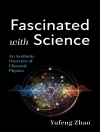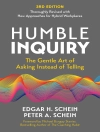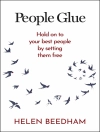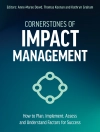This book analyzes future directions in the study of expertise and experience with the aim of engendering more critical discourse on the general discipline of science and technology studies. In 2002, Collins and Evans published an article entitled “The Third Wave of Science Studies, ” suggesting that the future of science and technology studies would be to engage in “Studies in Expertise and Experience.” In their view, scientific expertise in legal and policy settings should reflect a consensus of formally-trained scientists and citizens with experience in the relevant field (but not “ordinary” citizens). The Third Wave has garnered attention in journals and in international workshops, where scholars delivered papers explicating the theoretical foundations and practical applications of the Third Wave. This book arose out of those workshops, and is the next step in the popularization of the Third Wave. The chapters address the novel concept of interactional experts, the useof imitation games, appropriating scientific expertise in law and policy settings, and recent theoretical developments in the Third Wave.
Tabla de materias
Chapter 1. Introduction – Part One: Law and Policy Studies in Expertise – Introduction to Part One.- Chapter 2. Twenty-Five Years of Opposing Trends: The Demystification of Science in Law, and the Waning Relativism in the Sociology of Science .- Chapter 3. Ignoring Experts .- Chapter 4. Recognizing Counterfeit Scientific Controversies in Science Policy Contexts: A Criteria-Based Approach .- Chapter 5. Judging Social Work Expertise in Care Proceedings .- Chapter 6. Geographical Expertise: From Places to Processes and Back Again .- Part Two: Imitation Games .- Chapter 7. Bonfire Night and Burns Night: Using the Imitation Game to Research English and Scottish Identities .- Chapter 8. How (Well) Do Media Professionals Know Their Audiences? S.E.E. Meets Media Studies .- Chapter 9. East German Identity: A Never-Ending Story? .- Chapter 10. The Game With Identities: Identifications and Categorization as Social Practice .- Part Three: Interactional Expertise.- Chapter 11. The Test of Ubiquitous Through Real or Interactional Expertise (TURINEX) and Veganism as Expertise .- Chapter 12. Why They’ve Immersed: A Framework for Understanding and Attending to Motivational Differences Among Interactional Experts .- Chapter 13. Developing a Theoretical Scaffolding for Interactional Competence: A Conceptual and Empirical Investigation into Competence versus Expertise .- Chapter 14. Collaboration Among Apparently Incommensurable Expertises: A Case Study of Combining Expertises and Perspectives to Manage Climate Change in Coastal Viginia .- Part Four: Conceptual and Theoretical Developments .- Chapter 15. Trading Zones Revisited .- Chater 16. Interactional Expertise as Primer of Abstract Thought .- Chapter 17. A Scientific Research Program at the U.S.-Mexico Borderland Region: The Search for the Recipe of Maya Blue .- Chapter 18. Conclusion
Sobre el autor
David S. Caudill, Ph D, is the Golderg Family Chair in Law at Villanova University Charles Widger School of Law. He is the author of No Magic Wand (2006, with L.H. La Rue) and Stories about Science in Law (2011), as well as numerous articles and book chapters on expert evidence.
Shannon N. Conley, Ph D, is an Assistant Professor in Integrated Science and Technology at James Madison University, where she co-directs the Science, Technology, and Society Futures Lab. She is a member of the Socio-Technical Integration Research (STIR) project, which embeds social scientists and humanities scholars in laboratories to explore responsible innovation.
Michael Gorman, Ph D, is a Full Professor in Science, Technology & Society at the University of Virginia, and was an NSF Program Director for two years (2011-2012). His most recent book is Gorman, M.E. (Editor), Trading Zones and Interactional Expertise: Creating New Kinds of Collaboration (MIT Press, 2010).
Martin Weinel, Ph D is a sociologist and researcher at the Cardiff School of Social Sciences at Cardiff University. He has written on aspects of expertise, science policy, interdisciplinarity, science communication and the Imitation Game. He is currently working on two EU-funded projects exploring the use of new technologies in industrial settings.












